
Le Réseau des Centres d’études Jean-Baptiste Scalabrini
« Afin de répondre au défi que les migrations posent, la Congrégation scalabrinienne ne saurait se cantonner […] à assurer une tâche quelconque dans le cadre de l’assistance pastorale fournie dans les paroisses, dans les missions ou dans d’autres structures analogues. Le fait migratoire doit être abordé dans sa globalité et demande une étude approfondie tant du point de vue sociologique que théologique, si l’on veut organiser une action pastorale correcte ». C’est dans ces termes qu’en 1980 s’exprimait le Père Velasio de Paolis, représentant général des Missionnaires de Saint-Charles (Scalabriniens), à l’issue d’une rencontre des responsables des Centres d’études scalabriniens.
Après la création à Rome en 1963 d’un centre d’études sur l’émigration, toutes les provinces religieuses des Scalabriniens ont souhaité se doter de structures analogues, avec, selon les cas, une connotation plus sociologique ou plus pastorale, mais toutes axées sur la collecte documentaire et la réflexion sur les phénomènes migratoires de même que sur les modèles d’action à mettre en œuvre sur le terrain.
C’est ainsi qu’en l’espace d’un quart de siècle, plus d’une quinzaine de centres ont vu le jour dans de nombreuses villes de la planète : New York (CMS1 Center for Migration Studies., 1966), São Paulo (CEM2 Centro de Estudos Migratórios., 1970), Bâle (CSERPE3 Vereinigte Studienzentren für Auswanderungsfragen. La dénomination d’origine, qui détermine le sigle, est en italien : Centro di studi e ricerche pastorali sull’emigrazione (per l’Europa)., 1972), Porto Alegre (CEPAM4 Centro de Estudos da Pastoral Migratória., 1973), Peronnes-lès-Binches (CDM5 Centre de documentation sur les Migrations., Belgique, 1973), Munich (CEDOM6 Centro di documentazione migratoria., 1975), Londres (SMC7 Scalabrini Migration Centre., 1976), Buenos Aires (CADEMS, puis CEMLA8 Centro de Estudios Migratorios Latino Americanos., 1976), Paris (CIEMM9 Centre d’information et d’études méditerranéennes, devenu plus tard le CIEMI., 1977), Toronto (IPM10Istituto di Pastorale Migratoria., 1978), Caracas (CEPAM11 Centro de Estudios de Pastoral y Asistencia Migratoria., 1977), Reutlingen (Allemagne, ASTEA, 1979), Sydney (CMSS12 Centre for Migration Studies Sydney., 1981), Manille (SMC13 Scalabrini Migration Center., 1987), etc.
Dès le début, ces organismes « frères » ont jugé opportun, voire nécessaire, d’unir et coordonner leurs efforts face à une réalité migratoire mondiale et multi-dimensionnelle. Pour ce faire, en 1976, ils se sont dotés de leurs premiers statuts en vue de former une Confédération des centres pour l’étude des migrations (d’où le premier acronyme en anglais de CCMS), dénomination ensuite modifiée pour devenir « Fédération » (FCMS). L’article premier stipule que « la Fédération des Centres d’études sur les migrations “Jean-Baptiste Scalabrini” est une organisation internationale à but non lucratif, engagée au service des migrants au niveau de la recherche, de l’analyse et de la proposition. La Fédération entend poursuivre l’inspiration et le travail de Mgr Jean-Baptiste Scalabrini voué à la sensibilisation des sociétés d’accueil, des institutions et des individus via l’étude du phénomène migratoire dans ses différents aspects ».

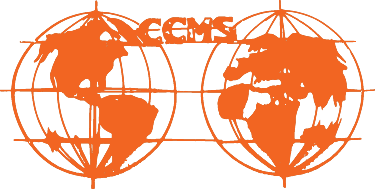

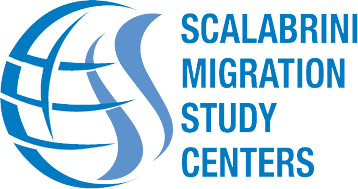
Sous la direction d’un président et d’un secrétaire, la FCMS — aujourd’hui dénommée « réseau » anime des débats et impulse des projets communs aux organismes membres. Des bulletins de liaison, des publications communes et des actions de lobbying ont vu le jour. En 2004, l’ONU reconnaît la Fédération comme une ONG à statut consultatif habilitée à participer à ses travaux sous l’égide du Center for Migration Studies de New York.
Les rencontres périodiques entre les représentants des Centres d’études sur les migrations sont aujourd’hui l’occasion de dresser le panorama mondial de l’actualité migratoire. Source d’inspiration réciproque, elles permettent une évaluation du travail effectué par chacun et le lancement d’initiatives internationales.
Si certains centres ont cessé leur activité, en 2014 le Scalabrini Institute for Human Mobility in Africa (SIHMA) a été créé au Cap avec l’objectif de « couvrir » l’Afrique, seul continent où le Réseau était jusqu’alors absent.
Le Réseau des centres d’études Jean-Baptiste Scalabrini, auquel appartient le CIEMI, est donc constitué d’organismes situés sur tous les continents : le Centro Studi Emigrazione Roma (CSER) à Rome, le Center for Migration Studies (CMS) à New York, le Centro de Estudos Migratórios (CEM) à São Paulo, le Centro de Estudios Migratorios Latino-Americanos (CEMLA) à Buenos Aires, le Scalabrini Institute for Human Mobility in Africa (SIHMA) situé au Cap, et le Scalabrini Migration Center (SMC) à Manille. Ces structures, qui possèdent souvent un pôle documentaire et une revue spécialisée, sont associées à des organisations humanitaires et scientifiques (« maisons du migrant », centres d’accueil, radios, facultés universitaires, etc.) constituant le Scalabrini International Migration Network (SIMN), lui aussi présent en qualité d’ONG au sein de l’ONU.
Si le CIEMI édite la revue Migrations Société, le Center for Migration Studies (CMS) de New York publie International Migration Review ; le Centro de Estudos Migratórios (CEM) de São Paulo édite Travessia ; le Centro de Estudios Migratorios Latinoamericanos (CEMLA) de Buenos Aires produit Estudios Migratórios Latinoamericanos ; le Scalabrini Institute for Human Mobility in Africa (SIHMA) du Cap édite African Human Mobility Review ; le Scalabrini Migration Center (SMC) de Manille publie Asian Pacific Migration Journal ; et le Centro Studi Emigrazione (CSER) de Rome fait paraître Studi Emigrazione.
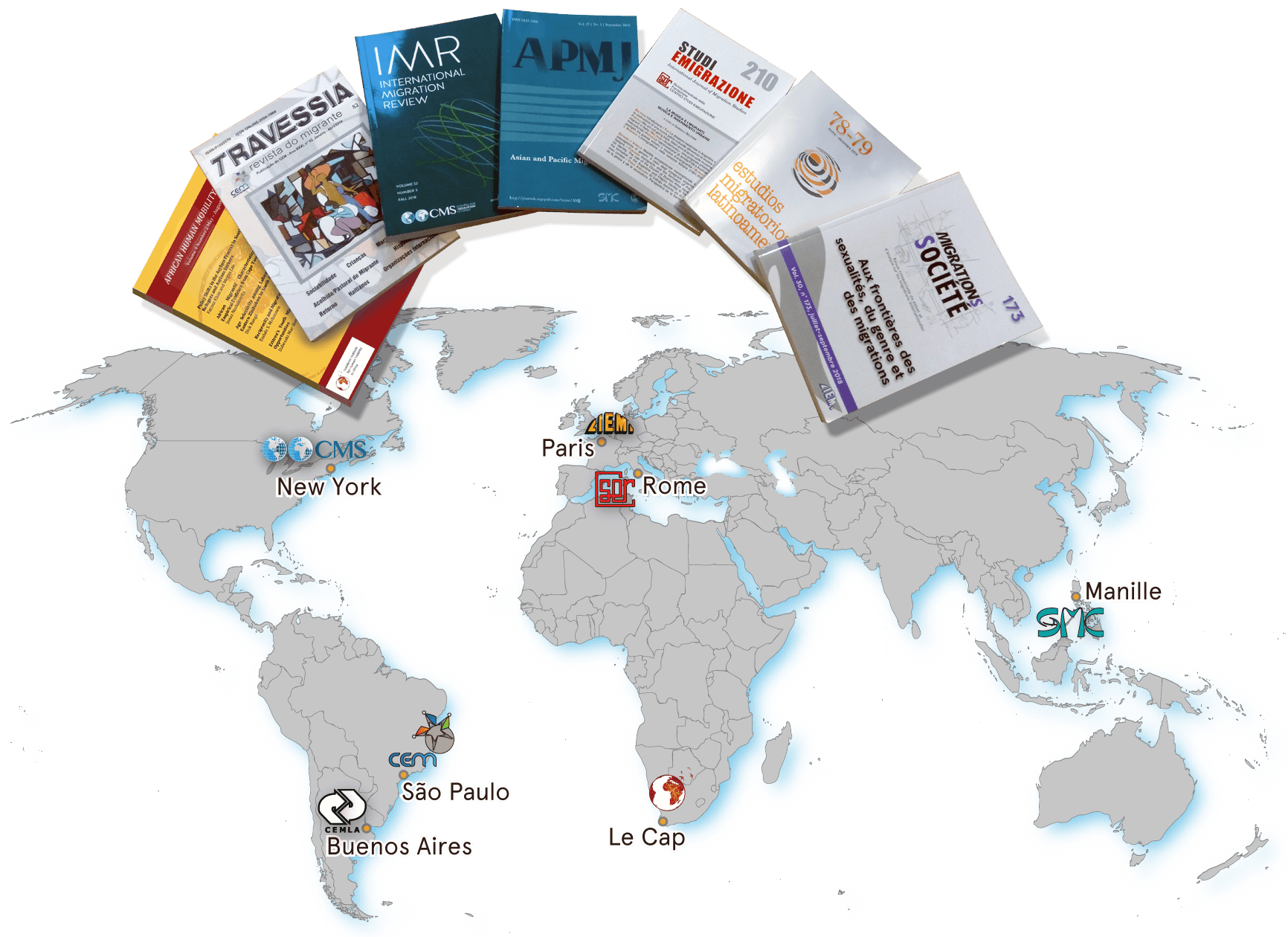
- CEM - São Paulo. Conférence sur la discrimination raciale
- CEMLA - Buenos Aires. 2013. Séminaire interne
- CMS - New York. P. Livio Tomasi, fondateur du Centre
- La salle de lecture du CSER - Rome
- SMC - Manille. Mme Maruja B. Asis, l'une des responsables du Centre
- SIHMA - Le Cap. M. Sergio Carciotto, (Directeur) avec M. Corey Johnson et P. Peter-John Pearson
- CEM - São Paulo. Le directeur, P. Paolo Parise
- CEMLA - Buenos Aires. Le Centre possède une importante base de données sur les arrivées de migrants en Argentine
- CMS - New York. Témoignage pendant un colloque sur les réfugiés
- CSER - Rome. Table Ronde et formation
- SMC - Manille. P. Graziano Battistella et Mme Maruja B. Asis
- SIHMA - Le Cap. Rencontre formative de femmes
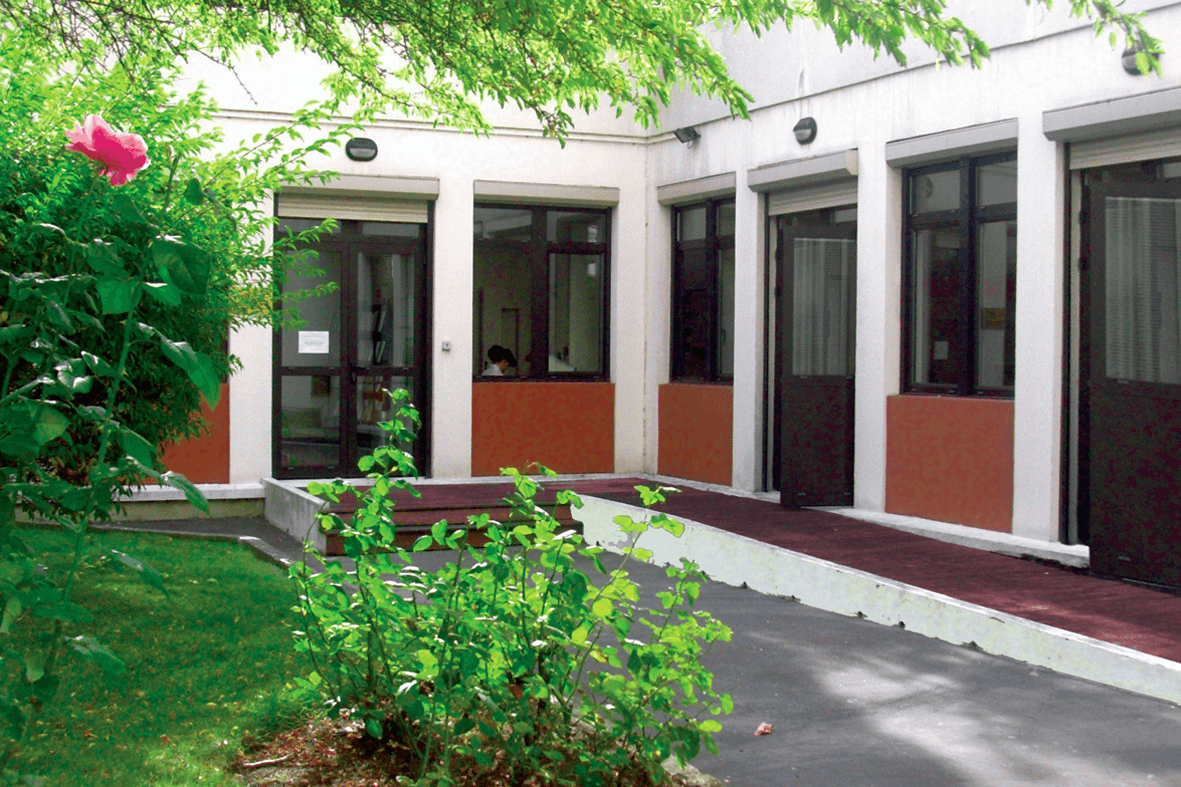
<
>
Les Centres d’études

Le Centro de Estudos Migratórios (CEM) situé à São Paulo dispose d’une bibliothèque spécialisée sur les migrations, publie la revue Travessia, propose des cours à distance, organise des séminaires, dispense des formations et réalise des visites guidées pour les étudiants et les chercheurs, afin de leur faire connaître la réalité et les actions de l’organisme dont il dépend, à savoir la Missão da Paz.
CEM – Centro de Estudos Migratórios
Rua Vasco Pereira 55
01514-030 Liberdade - São Paulo - Brésil
Tél. +55 11 3208 6227 / Fax +55 11 3208 2284
sm$v$9QQp2GQWpz.2MZ – http://www.missaonspaz.org

Le Centro Argentino de Documentación y Estudios Migratorios Scalabriniano (CADEMS), fondé en 1976, devient, en 1985, sous l’impulsion du père Luigi Favero, le Centro de Estudios Migratorios Latino Americanos (CEMLA) à l’issue des premières conférences sur l’immigration et l’identité, tenues en août de la même année dans ses locaux de Buenos Aires. C’est en cette période que le Centre lance la publication d’Estudios Migratorios Latinoamericanos, la première revue académique exclusivement consacrée aux questions migratoires en Amérique latine.
CEMLA – Centro de Estúdios Migratórios Latino-Americanos
Avda Independencia 20
1099 Buenos Aires - Argentine
Tél. +54 11 43 42 67 49 / Fax +54 011 43.31 08 32
sm$lpvsm$lp.s2$ - http://www.cemla.com

Le Center for Migration Studies situé à New York (CMS) se veut un lieu de réflexion et un institut pédagogique consacré à l’étude des migrations internationales, à la promotion de la compréhension réciproque entre les immigrés et les autochtones et émet des recommandations à l’adresse des responsables politiques afin de préserver la dignité et les droits des migrants. Le CMS a été créé de fait en 1964, mais enregistré sur le plan légal en 1969. Profitant de sa proximité géographique avec le siège de l’ONU, tout au long de son histoire le CMS a entretenu un dialogue constant avec les responsables politiques de plusieurs pays. Le Centre possède des archives constituées de plus de 100 collections qui documentent l’expérience des migrants en Amérique du Nord, du milieu du XIXe siècle au XXIe siècle, une source particulièrement riche notamment pour les études italo-américaines.
CMS – Center for Migration Studies
307 East 60th Street - 4th Floor
NEW YORK, N.Y.10022 - États-Unis
Tél. +1 718 351.88.00 / Fax +1 718 667 45 98
s$Qvs$QGy.2MZ - http://www.cmsny.org

Le Centro Studi Emigrazione Roma (CSER) est une institution à vocation culturelle créée en 1963 par les Missionnaires de Saint-Charles (Scalabriniens). Le Centre étudie le phénomène de la migration selon une approche interdisciplinaire, en approfondissant les aspects sociologiques, démographiques, historiques, économiques, éthiques et législatifs de la mobilité humaine.
CSER – Centro Studi Emigrazione Roma
Via Dandolo 58 - 00153 Roma - Italie
Tél. +39 06 580 97 64 / Fax +39 06 581 46 51
sQmMvsQmM.9t - http://www.cser.it
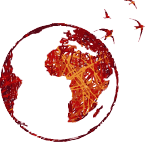
Le Scalabrini Institute for Human Mobility in Africa poursuit la vision d’une Afrique où les droits humains des personnes en mouvement sont garantis et leur dignité promue. Sa mission consiste à mener et à diffuser des recherches qui contribuent à la compréhension de la mobilité humaine et à l’élaboration de politiques garantissant les droits et la dignité des migrants en Afrique, notamment des demandeurs d’asile et des réfugiés.
SIHMA – Scalabrini Institute for Human Mobility in Africa
47, Commercial Str. - 8001 Cape Town - Afrique du Sud
Tél. / Fax : +27 21 465 6433
Q9h$pvQ9h$p.2MZ.zp - http://www.sihma.org.za

Le Scalabrini Migration Centre (SMC), créé en 1987 à Manille, se consacre à la promotion de l’étude interdisciplinaire des migrations internationales, en mettant un accent particulier sur les questions de la migration dans la région Asie-Pacifique. Outre la recherche, le SMC gère un centre de ressources spécialisées, publie la revue trimestrielle académique Asian and Pacific Migration Journal, organise des programmes de formation, défend la promotion des droits des migrants et établit des passerelles avec le monde universitaire, la société civile, les organisations internationales et les instances gouvernementales.
SMC – Scalabrini Migration Center
40 Matapat Street
Bgy. Pinyahan, 1100 Quezon City – Philippines
Tel. +63 2 436-7915 / Fax +63 2 721.42.96
Q$svQ$s.2MZ.Wh - Web site : http://www.smc.org.ph
CIEMI - 46, rue de Montreuil
75011 - Paris - France
© Ciemi 2024
Ce site ne contient pas d’annonces publicitaires et n’utilise pas de cookies tierce partie. Aucune donnée relative aux internautes n’est collectée. Pour plus de détails, veuillez consulter la section « mentions légales » située dans le menu « Contact ».
